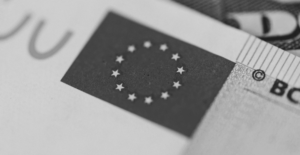The EU implemented the Digital Services Act (DSA) around six weeks ago to fight illegal content including brand abuse and the sale of counterfeits on the Internet. In our last post covering the Act, we briefly summarized the legislation, highlighting its implications for businesses and consumers alike. Here, EBRAND experts drill down into the details, unpacking the responses from individual corporations.
Céline Le Lay, IP Legal Department Manager at EBRAND France, and Konrad Dudzinski, Chief Intellectual Property Officer at EBRAND Poland, examine the DSA’s impact as things stand. Understanding these changes helps inform your digital strategy, so you can embrace the digital landscape’s legislative evolution.
The Issue at hand: Accountability and Anti-Counterfeiting online
The Digital Services Act (DSA) was published on 27 October 2022. It focuses on the fight against illegal content on the Internet. Beyond that, it also makes the major players in the digital sector more accountable. These players include Internet hosts, Internet service providers, and marketplaces.

The DSA maintains a primarily European scope, though its impact extends around the world. As a piece of EU legislation, it serves to harmonize the various regulations adopted by different member states. It recontextualizes national regulations that prove a little outdated in the light of recent developments online.
Who’s affected by the Digital Services Act?
The European Parliament intends for the DSA intended to apply across all players in the Internet world. This includes Internet Service Providers (ISPs), marketplaces, social networks, online travel and accommodation platforms, and search engines.
Notably, the Act focuses on a European audience, based on a range of indicators. These factors include the language of the site, the domain name extension such as .EU, .FR, .PL.., for example, and any targeted activities. The DSA’s scope applies even if the online intermediary is located outside the European Union.
The DSA’s two-stage roll-out
The DSA came into effect on August 2023 for a list of very large online platforms (VLOPs) designated by the European Commission. This list includes AliExpress, Amazon, Apple Appstore, Booking.com, Facebook, Google Play, Google Maps, Google Shopping, Instagram, LinkedIn, Pinterest, Snapchat, TikTok, Twitter, Wikipedia, YouTube, and Zalando.
The second stage of the DSA’s roll-out begins on the 17th of February 2024, when it will impact service providers beyond the VLOP category.
How has the Digital Services Act changed online platforms?
Much has changed in the month since the DSA came into effect. Here’s a list of these changes, broken down for each relevant VLOP.

Zalando
Both Zalando and Amazon quickly disputed their inclusion on the list of major players, and to this day refuse to be bound by the DSA. Zalando’s complaint (case T-348/23 Zalando v Commission) raises, among other things, the point that even though it is considered a marketplace, it does not reach the threshold of 45 million monthly active users.
According to the German e-commerce giant, the method used to calculate the number of users is unclear and leads to unequal treatment of online platforms.
Amazon
Amazon recently obtained a decision from the Court of the European Union suspending its designation as a “very large online platform” within the DSA’s remit. The platform refuses to be bound by the provisions on targeted advertising, which would result in financial loss and, above all, a lack of interest among consumers. Amazon also contends that the Act’s obligation to provide access to its advertising register would jeopardize the confidentiality of its advertisers’ personal data.
Unsurprisingly, we identified no changes on Zalando or Amazon platforms in light of the DSA. Many players already claim to meet the requirements of the DSA and now intend to improve transparency issues.
Google has extended its ‘Priority Flagger’ program, already in place on YouTube, to its other platforms in order to comply with the DSA. The platform is also offering a procedure for objecting to the removal or blocking of content, as is already the case with YouTube. There has been no change in the mechanisms for reporting illegal content. In most services, the procedure for reporting harmful content is clearly described.
To better comply with DSA requirements, Google increased transparency: for instance, it created a new “transparency center” with expanded functionalities. Additionally, Google created the ‘Researcher Program’ (reserved for organizations based in the European Union), which gives researchers access to data on its platforms.
Meta
Meta, the group that owns the Facebook and Instagram social networks confirms that the procedure for reporting infringements on its platforms already meets the DSA’s requirements. It has, however, made its tools easier to use. At the time of writing, there have been no changes to its reporting forms.
On transparency obligations: Meta has included in its “transparency center” full information on how the AI (artificial intelligence) used works and is making two new tools available to researchers, the “Meta Content Library” and the “Content Library API”. Finally, Meta has changed the rules for targeting ads aimed at minors.
X (formerly Twitter)
X (formerly Twitter) has introduced a new form for reporting illegal content in the EU. However, users must still report infringements of intellectual property with the existing forms.
The platform also introduced a form for appealing against content deletion. X has set up a contact point to which users in the European Union can address their requests relating to the operation of the platform. Beyond that, the platform launched the “Twitter Moderation Research Consortium”, giving international researchers from academia, civil society, NGOs, and journalism access to more data on the platform.
Snapchat
Both Snapchat and TikTok emphasized the transparency of their algorithms. The platforms pledged to improve the way that content targets minors. Snapchat clearly communicated the changes it made as part of the implementation of DSA. From now on, users whose content with reported content will receive information about the removal, and will be able to appeal against Snapchat’s decision.
Snapchat also changed they ways that ads target users on their platform. Specifically, it removed certain ad targeting criteria for minors. By clicking on “why am I seeing this ad”, Snapchat users in the EU can learn more about the ad, and it appears on their devices. The platform has appointed DSA Compliance Officers who are responsible for monitoring Snapchat’s compliance with DSA requirements.
TikTok
TikTok has also introduced a number of changes to improve transparency. In particular, the platform has extended access to its search API to university researchers in Europe. The platform opened a Commercial Content Library (Ads Library), and they are working on Commercial Content API.
TikTok’s privacy policy also updated following the DSA’s implementation, updating regulations around targeted advertising for minors to comply with the European directive. And, as part of the implementation of the DSA, TikTok has modified the current method of reporting content by introducing an additional option: “Report illegal content for users in the European Economic Area (EEA)”.
Pinterest updated its forms and appointed a contact point for the EU. Since the DSA’s implementation, Pinterest communicate has communicated their changes very clearly. The platform introduced a new form for reporting illegal content in the EU. This form seems clear and offers the possibility of anonymous reporting.
In the case of intellectual property rights infringement, there is a redirection to the old form created under the DMCA regulations (DMCA is the abbreviation for “Digital Millennium Copyright Act”. This US law, enacted in 1998, criminalizes the illegal use of copyrighted material and has far-reaching effects. Although users across the world access their websites, national legislation governs each of the platform’s server locations).
Pinterest also introduced clear rules to inform users whenever there that their content faces a report for violating EU law. It also notifies them of their option to appeal. Finally, Pinterest set up a contact point for the European Commission, EU Member State authorities, and the European Digital Services Commission.
AliExpress
To date, the Chinese e-commerce giant has given no information on the implementation of the provisions of the DSA.
There are no new forms, the process for reporting violations has not changed, and there is no information on any efforts to improve transparency.
What’s the Digital Services Act’s impact so far?
Overall, the major online platforms have played the DSA game and communicated any changes they made to accommodate the DSA.

Clearly, none of the major Internet players has revolutionized the way in which rights holders will be able to report infringements. However, the Act still helps authorities hold online platforms more accountable for disputed content on the Internet.
Who monitors the DSA’s enforcement?
Each EU country must appoint an independent authority to monitor the Digital Services Act and its application. In France, Arcom fills this role. All these authorities will work together to monitor, analyze, and issue recommendations on new regulations. For large platforms, the European Commission will carry out more extensive monitoring, funded by the platforms themselves through fees.
What penalties will breaching parties face?
Failure to comply with the DSA will result in fines and periodic penalty payments. The worst-case scenario involves a ban on operating on the European market.
Advice for embracing the Digital Services Act
Only the very largest platforms are currently subject to the Digital Services Act. It will apply to other Internet players on 17 February 2024. Only then we will be able to truly measure its effects. However, the DSA represents a real step forward in the field of digital regulation. It should contribute to better protection of users’ fundamental rights on the Internet.
Ultimately, the Act aims to facilitate the identification of fraudsters and the deletion of illegal content on the Internet. It does not make it possible to suspend such content permanently and prevent it from reappearing almost immediately.
We therefore strongly recommend that intellectual property rights holders systematically monitor online platforms in order to:
- Detect fraudulent notices on all existing channels: marketplaces, social networks, App stores, online shops (e-commerce sites), websites, Darknet;
- Analyze potential infringements and remove illegal content;
- Identify and notify offending vendors.
Beyond that, the expertise and support of experts seem often essential to make it easier to deal with platforms. In fact, it makes it much more efficient to remove illegal content.
Conclusions: What’s next
Staying abreast of new legislation gives you and your business the best chance to react fast and embrace new opportunities. With that in mind, we appreciate you for reading our guide, and good luck adapting to the Digital Services Act’s digital landscape.
The legislation around ecommerce platforms and VLOPS changes rapidly, and the DSA’s not the only set of laws affecting your business going forward. Keep the conversation going, and get in touch with our experts so we can prepare your business for the future, together.


